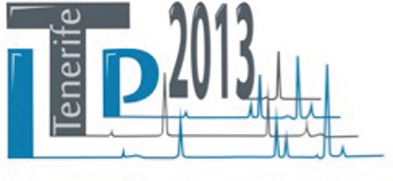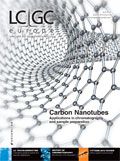20th International Symposium on Electro- and Liquid-Phase Separation Techniques (ITP2013)
The 20th International Symposium on Electro- and Liquid-Phase Separation Techniques (ITP2013) will take place at the Hotel Beatriz Atlantis & Spa, Tenerife, Spain from 6?9 October 2013.

The 20th International Symposium on Electro- and Liquid-Phase Separation Techniques (ITP2013) will take place at the Hotel Beatriz Atlantis & Spa, Tenerife, Spain from 6–9 October 2013.
The ITP symposium is the 20th in the series and has been previously held at locations throughout Europe and North America. The co-chairs of ITP2013 are Alejandro Cifuentes from the Spanish National Research Council (CSIC) (Madrid, Spain) and Javier Hernández‑Borges from the University of La Laguna, Tenerife, Spain.
The dynamic programme of ITP2013 will highlight analytical technologies that provide electro- and liquid-phase separations, including capillary electrophoresis CE), microchip CE, high performance liquid chromatography (HPLC), ultrahigh-pressure liquid chromatography (UHPLC), micro- and nano‑scale HPLC, electrokinetic chromatography (EKC), electrochromatography (EC), two-dimensional electrophoresis (2-DE) and hyphenated techniques.
ITP2013 is structured over four days beginning with an initial workshop. This will be followed by plenary lectures and contributed communications, as well as poster sessions, vendor seminars and an exposition. Organized sessions will cover glycomics, proteomics foodomics, metabolomics, genetic analysis, DNA sequencing and separation, miniaturization and microfluidics, bioanalysis, biotechnology, (bio)pharmaceutical analysis, environmental analysis, food analysis, multidimensional separations, hyphenated techniques, novel instrumentation,and sample preparation.
To promote young researchers within the field, a Young Scientist Session will be held, as well as a poster award competition. The top presentations in both will receive awards.
The Scientific Committee of the symposium is permanently formed by a group of renowned scientists from within the field including: Alejandro Cifuentes (Madrid, Spain); Ziad El Rassi (Stillwater, USA); Salvatore Fanali (Rome, Italy); Frantisek Foret (Brno, Czech Republic); Bohuslav Gas (Prague, Czech Republic); Takeshi Hirokawa (Hiroshima, Japan); Stellan Hjerten (Uppsala, Sweden); Vaclav Kasicka (Prague, Czech Republic); Ernst Kenndler (Vienna, Austria); Blanca Lapizco-Encinas (Rochester, USA); Marja-Liisa Riekkola (Helsinki, Finland); and Marina Tavares (Sao Paulo, Brazil).
Tenerife is one of the seven Canary Islands that are part of Spanish territory in the Atlantic Ocean, located 100 km off the north-western coast of continental Africa. Together with the islands of Azores, Madeira and Cape Verde, they constitute a group of archipelagos called “Macaronesia”. Tenerife has an optimum climate throughout the year, with unique and beautiful landscapes that are worth seeing. In particular, the volcano and highest mountain of Spain located in the middle of the island, Las Cañadas del Teide National Park, was declared a UNESCO World Heritage natural site in 2007. The ITP2013 venue is located on the north coast of the island at Puerto de la Cruz. It is a lively, cosmopolitan town that has preserved its traditional seaside atmosphere, as well as offering a wide range of leisure activities.
Lunches, dinners, coffee breaks and a full social programme that includes a visit to Las Cañadas del Teide National Park are included in the conference fee.
In addition, this year ITP2013 will connect for the first time with the XIII Meeting of the Spanish Society of Chromatography and Related Techniques (SECyTA2013) which will be held at the same place on 8–11 October 2013.
Important deadlines include: 31 May 2013 for abstract submissions and 30 June 2013 for early registration and special prices at local hotels.
For more detailed information visit: ww.itp2013.ull.es

Assessing Banned Menthol Characterizing Flavors in Cigarettes with GC–MS
April 24th 2025The United Kingdom banned menthol as a characteristic flavor in cigarettes in May 2020. Researchers tested cigarettes sold in 2021–2022 for menthol and other characterizing flavors through sensory and chemical testing, using gas chromatography–mass spectrometry (GC–MS) in their research.
Addressing PFAS Challenges with Modern High Resolution IMS-MS Methods
April 24th 2025This article explores the integration of high-resolution ion mobility spectrometry–mass spectrometry (HRIMS-MS) with liquid chromatography (LC) and quadrupole time-of-flight mass spectrometry (QTOF-MS) as a comprehensive workflow for PFAS analysis.

.png&w=3840&q=75)

.png&w=3840&q=75)



.png&w=3840&q=75)



.png&w=3840&q=75)











